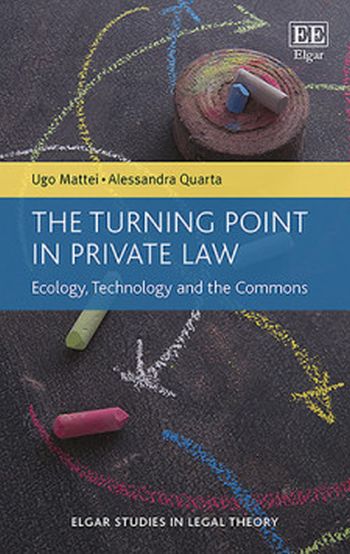We will be closed from 5pm Thursday 17th April for the Easter Bank Holidays, re-opening at 8.30am on Tuesday 22nd April. Any orders placed during this period will be processed when we re-open.

Can private law assume an ecological meaning? Can property and contract defend nature? Is tort law an adequate tool for paying environmental damages to future generations? This book explores potential resolutions to these questions, analyzing the evolution of legal thinking in relation to the topics of legal personality, property, contract and tort. In this forward-thinking book, Mattei and Quarta suggest a list of basic principles upon which a new, ecological legal system could be based. Taking private law to represent an ally in the defence of our future, they offer a clear characterization of the fundamental legal institutions of common law and civil law, considering the challenges of the Anthropogenic era, technological tools of the Internet era, and the global rise of the commons. Summarizing the fundamental institutions of private law: property rights, legal personality, contract, and tort, the authors reveal the limits of these legal institutions in relation to historical international evolution and their regulation in the contexts of catastrophic ecological issues and technological developments.
Engaging and thoughtful, this book will be interesting reading for legal scholars and academics of private law and, in particular, those wishing to understand the role of law when facing technological and ecological challenges.